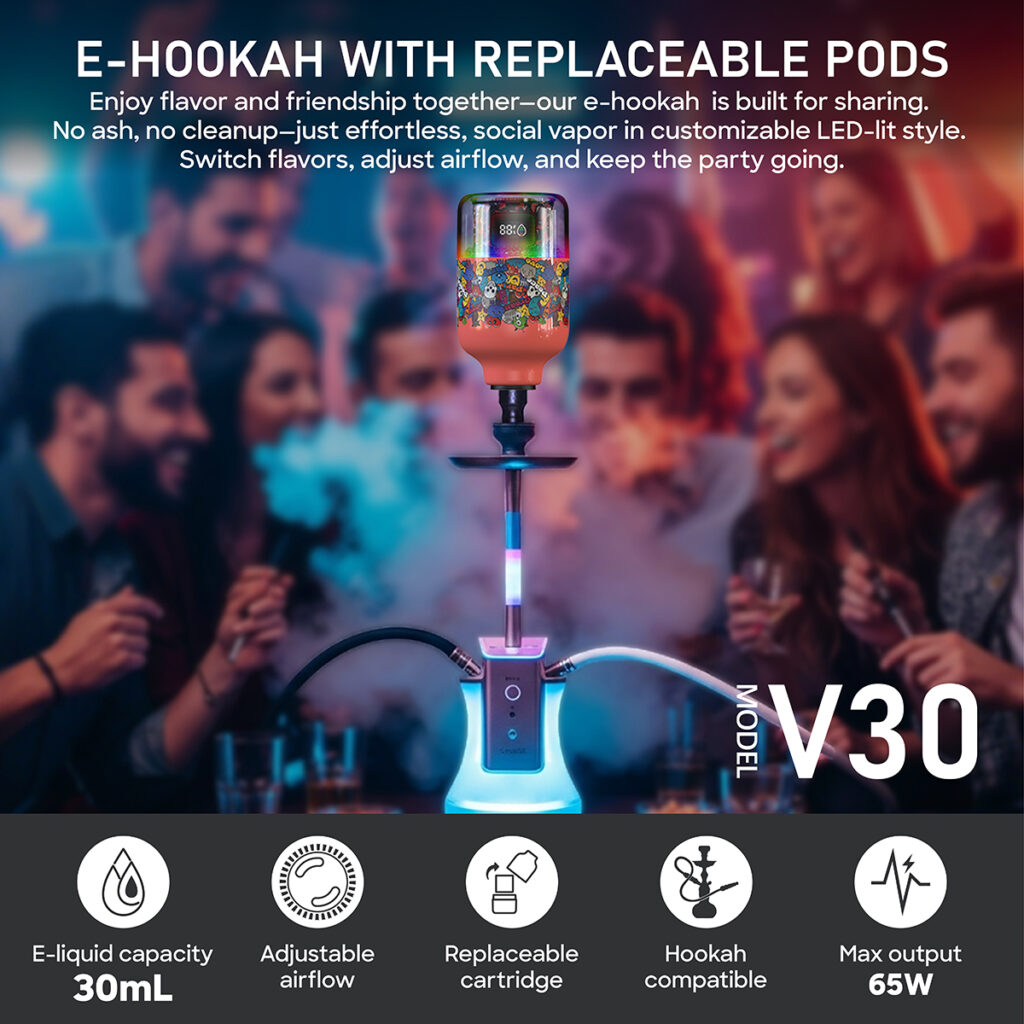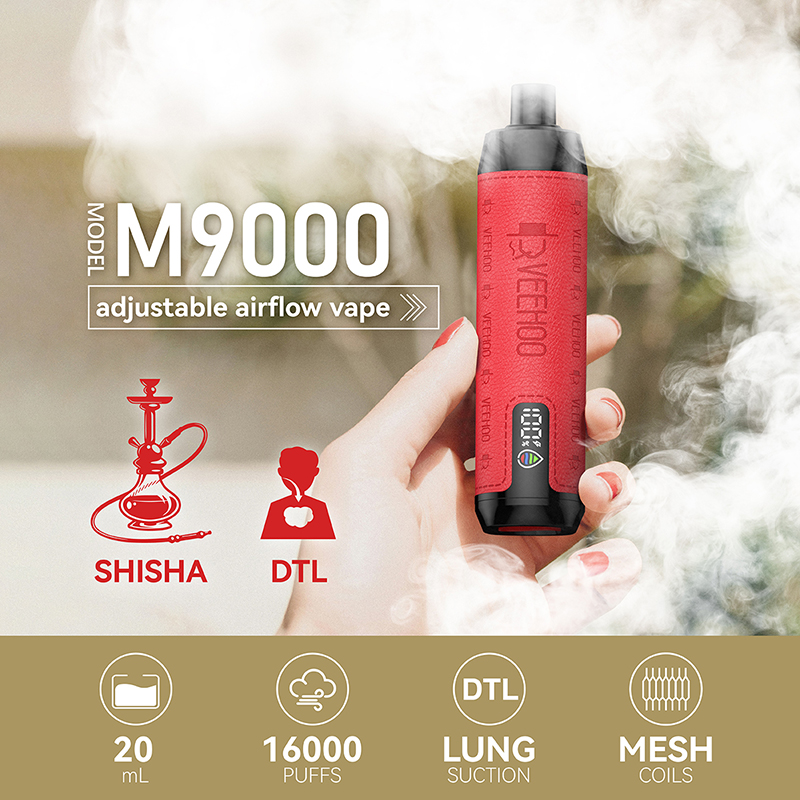In recent years, the Philippine e-cigarette market has grown rapidly, attracting active investment from both local and international brands. However, as the market expands, issues with product quality and safety standards have gradually emerged. To further regulate industry development and protect consumer rights, the Philippine government recently announced it will formally implement a ban on open e-cigarette cartridges and uncertified e-liquids, removing some related devices from the compliant list. This move has garnered widespread attention in the industry and is seen as a significant step in the country’s pursuit of a balance between public health and industry regulation.
The core of the new regulations is to restrict open cartridge systems. Open e-cigarettes are products that allow users to refill their own e-liquids or replace accessories. While these devices are marketed for their customizability and diverse flavors, they also present regulatory challenges. Some uncertified e-liquids have entered the market, posing risks such as unstable nicotine concentrations and unidentified additive sources. Philippine health authorities have noted that the uncertainty surrounding these products poses increased health risks to youth, and the source of illegal e-liquids is difficult to trace. Consequently, the government has decided to strictly control the sale of open devices and gradually remove them from the compliant list.
At the same time, the Philippine Food and Drug Administration (FDA) has also strengthened its e-liquid certification system. The new policy requires all e-liquid products to undergo an official certification process, clearly specifying their ingredient ratios, nicotine content, and labeling. Failure to do so will result in a ban on market distribution. This move not only safeguards consumer safety but also creates a more transparent competitive environment for the industry. Compliant brands will stand out, while products that rely on low prices and shady channels will be phased out.

The e-cigarette industry has had mixed reactions to the policy. Some small manufacturers believe the new regulations increase production and certification costs, potentially forcing some companies out of the market. However, large brands and international companies generally support it, believing it will help improve overall industry standards and reduce illegal competition. The VEEHOO e-cigarette brand is a representative example. As a well-known international brand in the Asian market, VEEHOO has long been known for its strict quality control and compliance operations.
The VEEHOO brand has a stable and well-regulated presence in the Philippine market. Its products have already passed numerous safety and compliance certifications, complying with current Philippine regulations regarding e-liquid ingredients, nicotine content, and packaging warnings. The company adheres to the “Health and Harm Reduction” philosophy, emphasizing the use of scientific research and technological innovation to help traditional smokers achieve a safer transition. This responsible brand approach has not only earned the trust of consumers but also the recognition of regulators.
In fact, VEEHOO has long been a leader in advocating for “compliant innovation” in the e-cigarette industry. The brand has invested significant resources in R&D, developing a sealed cartridge system to eliminate the risk of users refilling e-liquid at will. Furthermore, its e-liquid products use food-grade ingredients and are certified by international testing agencies to ensure product safety and consistency. These practices set a healthy and orderly industry benchmark for the Philippine market.

From a macro perspective, the Philippines’ regulatory upgrades are also a reflection of regional policy trends. In recent years, many Southeast Asian countries have strengthened e-cigarette regulation. Countries like Malaysia, Indonesia, and Vietnam have all implemented stricter legal frameworks regarding e-liquid ingredients and marketing. This not only reflects the government’s emphasis on public health but also demonstrates the market’s move towards greater standardization. As a populous country and a member of ASEAN, the Philippines’ regulatory policies serve as a model for innovation.
The new policies are expected to have a profound impact on the Philippine e-cigarette market. In the short term, the market may see some product withdrawals and channel adjustments, but in the long term, this will foster healthier growth for the industry. Compliant brands will enjoy a more stable development environment, and brands like VEEHOO, centered on quality and responsibility, will become the backbone of the future market.
For consumers, the new regulations will also help improve user experience and a sense of security. Previously, due to the prevalence of a large number of unlabeled and uncertified e-liquid products on the market, many users experienced adverse reactions such as throat irritation and unpleasant taste. Now, certified products not only have clear labeling but also offer a more consistent taste and safety guarantee. This means consumers can make more informed choices in a transparent and trustworthy market environment.

Notably, while implementing the new regulations, the Philippine government has also maintained a degree of industry flexibility. Some open device manufacturers still have the opportunity to re-enter the compliance list through design improvements and recertification. Regulators have stated that their goal is not a one-size-fits-all approach, but rather to guide the industry toward higher standards and technological innovation. This presents new development opportunities for brands like VEEHOO, which possess strong R&D capabilities and global experience.
Overall, the Philippines’ regulatory reforms for the e-cigarette industry are both an extension of public health policies and an opportunity for industrial upgrading. In this process, compliant brands like VEEHOO will not only be able to forge ahead steadily under the new circumstances, but also, through their responsible brand image, lead the industry towards sustainable development. As policies gradually take effect, the Philippine e-cigarette market is expected to achieve a virtuous cycle of “regulation and innovation,” providing a new model for regional harm reduction efforts.
In the future, driven by rising consumer health awareness and technological advancements, the e-cigarette industry will continue to evolve towards a safer, more environmentally friendly, and more intelligent direction. Brands like VEEHOO, with their innovative spirit and social responsibility, will continue to contribute to global tobacco harm reduction efforts. The Philippines’ regulatory reforms may be a sign that the e-cigarette industry is transitioning from unregulated growth to maturity.
Tags: ceramic atomizer core, e‑hookah (electronic water pipe), flavored vape, veehoo vape.
